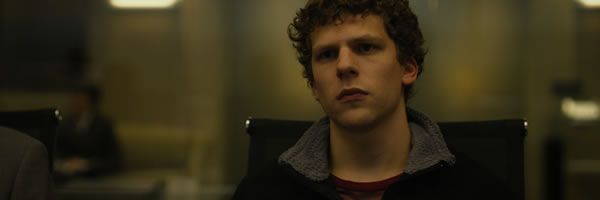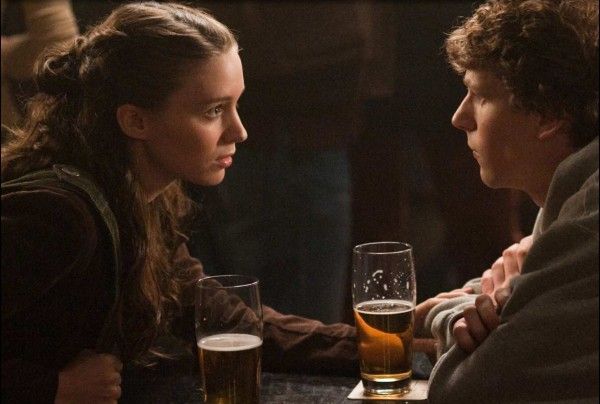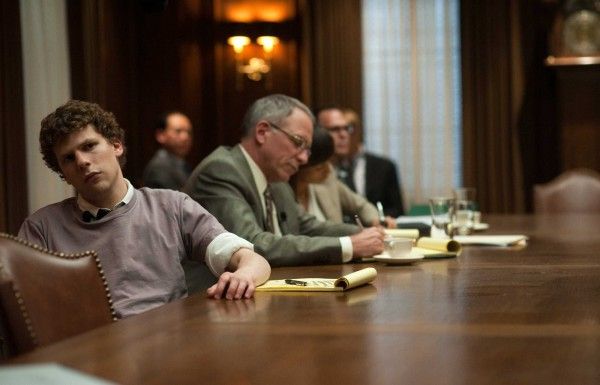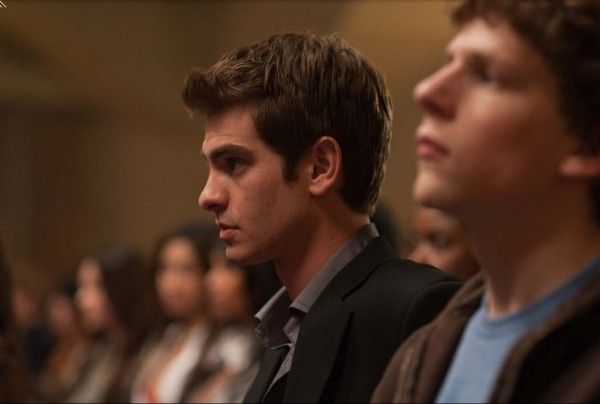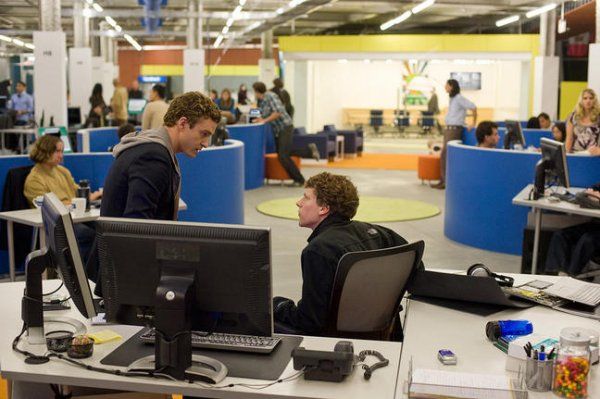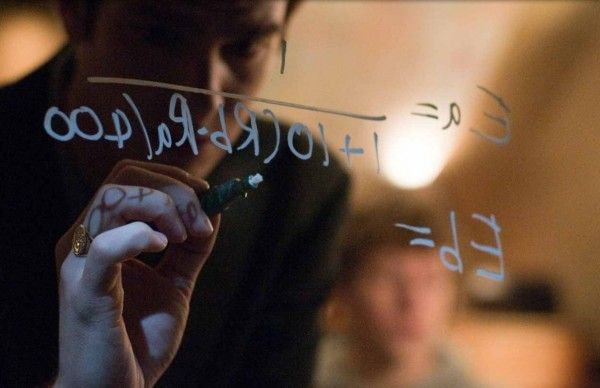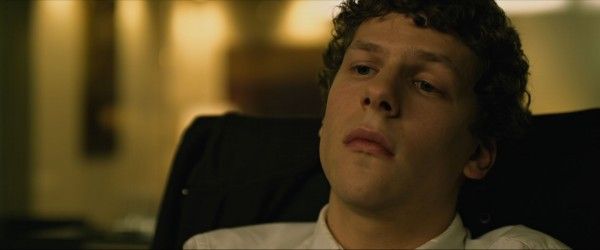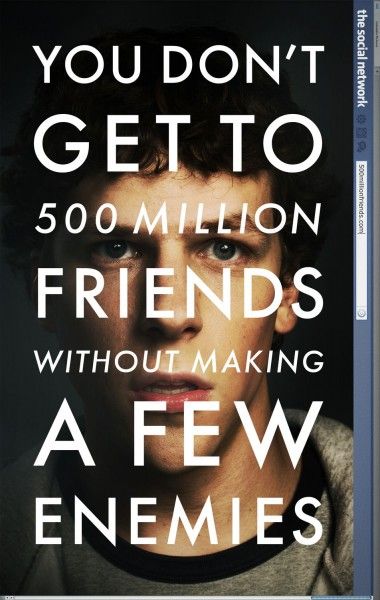[With Mindhunter set to premiere this week, we’re reposting our deep dives into the work of director David Fincher. These articles contain spoilers.]
If The Curious Case of Benjamin Button is a director and a screenwriter working at cross-purposes, then The Social Network are the two sides working in perfect harmony. Fincher's cold, austere tone was energized by Aaron Sorkin's fast-paced, witty dialogue, and Sorkin's grandiloquent verbiage was grounded by Fincher's realism. In some ways, the movie is highly stylized and yet it's indisputably honest when it comes to the characters, stakes, environment, and tension of the story. The facts may be in dispute, but this much is true: The Social Network is one of the defining works of the 21st century.
Speaking to Time in 2010, Sorkin explained the appeal of the project:
There are elements of it that are as old as storytelling: friendship and loyalty, class, jealousy, betrayal — all those kinds of things that were being written about 4,000 years ago. It struck me as a great big classic story. And those classic elements were being applied to something incredibly contemporary.
He's right—there is something classic about this story, which is one of the many reasons it continues to endure. And yet, the way this story is told and the characters involved could only apply to the social networking age, and how it changed the way we communicate with others. Mark Zuckerberg isn't an archetype, and his relationship with friends and loyalty is fundamentally different because his ability to break down relationships is a gift and a curse. He created something powerful enough to alter the way we perceive friendship and loyalty. He made us live in his world even though his world prefers artificial relationships to real ones, and it's all too easy to understand and empathize with his folly.
The opening scenes broach the question if we were ever all that connected in the first place. The conversation between Mark (Jesse Eisenberg) and Erica (Rooney Mara) immediately sets the mood in terms of what we're going to get from a Fincher/Sorkin collaboration: rapid-fire, erudite dialogue devoid of romanticism, which is made even more powerful when you consider that this is a date. I've always wondered how Mark ever got Erica to go out with him in the first place. Regardless, these are two people operating on completely different wavelengths, and even though Mark is inappropriate, he's mostly unaware of his hurtful comments. He's too inside his own head to make a proper connection, and so the date ends horribly.
Move to opening credits with Trent Reznor and Atticus Ross' melancholy, mechanical score, and then the movie opens up and becomes far more than just the story about one guy being bitter at the world and using the Internet as his form of self-expression. Mark's hacking scene is cross-cut with the "fuck truck" that brings girls into the final clubs (an act that's socially condoned despite being just as misogynistic as Mark's Facemash site). There's dancing, gyrating, and other partying, but we never feel for a second that it's a fun time. The party is shot in the same light as Mark's lonely dorm room if not darker. No matter where we go, we're still in the absence of honest, human connection; it's just that what's happening at the clubs is seen as "a better life" by outsiders. More people doesn't mean deeper connections. As we see at the end of the film, Facebook hits a user milestone and Mark happens to lose both Eduardo (Andrew Garfield) and Sean (Justin Timberlake) that same evening.
This quest for connection is the deeply human core of a biting, highly critical, and sharp critique of modern culture, and part of that comes from Fincher's empathy for Mark. Mark is a highly technical mind trying to understand human emotions, and while he has no problem deducing human calculation and manipulation, the notion of friendship eludes him.
Squaring off against Cameron and Tyler Winklevoss (Armie Hammer and Josh Pence), Mark is in his element. When they ask him why he gave away what was essentially Pandora instead of selling it to Microsoft, Mark just shrugs. In that moment, he's told them everything they should know—he doesn't care about money. Mark wants respect, and he doesn't want it from cocky power players, whether it be the Microsofts of this world or the Winklevoss Twins and Divya Narendra (Max Minghella). When we get around to the depositions with the Winklevi and Divya, Mark is just happily flexing his muscles at that point. In a line he probably wanted to tell them from the moment they offered him the "opportunity" to work for Harvard Connection, Mark says during the deposition, "I think if your clients want to sit on my shoulders and call themselves tall, they have the right to give it a try."
There's not much emotional pull in the fight between Mark and the Winklevi/Divya fight. It's Revenge of the Nerds, and it's easy to root for Mark. He's absolutely right when he tells Delpy (Rashida Jones) that he doesn't hate the Winklevoss Twins. They're not worth that kind of emotional investment. He explains, "They're suing me because for the first time in their lives, things didn't go exactly the way they were supposed to for them." Mark has disrupted the status quo, and while the Winklevi can whine to lawyers and the President of Harvard, the brothers are being left behind. Harvard was old money, the clubs were old money, and Mark Zuckerberg is the future. But the future isn't always brighter.
The relationship between Eduardo and Mark is the real tragedy at the center of the movie. It's the true betrayal from both sides as we see two young men who were going to change the world but weren't ready for the ramifications or the personal cost. And yet, the fracture came well before "thefacebook" was even created. Mark can't stand the idea of Eduardo getting into the Phoenix, so he throws in thinly-veiled backhanded compliments like confirming Eduardo's self-deprecating remark about being a diversity pledge. The sweetest thing Mark does for Eduardo is putting his name on the masthead because he knew how much it would mean to Eduardo's father.
Although Mark may be somewhat aloof and frequently the smartest person in the room, he's further humanized by how he falls under Sean Parker's (Timberlake) influence. Mark may want respect, but that doesn't mean he's above idolizing someone who represents an ideal version of himself. Sean is a rebel, he owns the room when he walks into it, and he's cool, confident, and collected. Mark is so blinded by his admiration that he fails to realize he's being played. Sean doesn't admire Mark; he sees a new business venture, and knows flattery will get him everywhere.
Facebook may cause these specific social manipulations, but Sorkin's right in that these relationships have existed forever. It's just that now we're seeing them in their death throes as they open the opportunity for the artificial connections provided by social media. Sean happily proclaims, (in what to me is the most prescient line in the film), "We lived on farms, then we lived in cities, and now we're going to live on the internet!" And it's a place we can't leave.
Mark is the clearest intersection of Fincher and Sorkin's approaches. Plenty of directors would treat a Sorkin work as Holy Scripture. In the making-of documentary for The Social Network, we see Fincher and Sorkin going back and forth, line by line on the script. It's part of Fincher's process to get into every aspect of production (at one point during the documentary, Eisenberg points out, " He’s thought about their job as much or more than them"), and while the script matters on every movie, it had to be razor sharp for this one. Every single syllable matters right down to the delivery of "I'm CEO, Bitch." Of course, the sad joke is that the business cards bearing that line are purely ego for Mark. It's not like he'll give them out for networking purposes.
Combined with Eisenberg's amazing performance, the movie absolutely lives up to Delpy's line when she tells Mark that's he's not an asshole; he's just trying so hard to be. Throughout the movie, we're shown Mark's tiny imperfections that belie his greater desires. Even when Eduardo is explaining how his personal life is in shambles, Mark notes, "Still, it's nice you have a girlfriend." The guys in the final clubs got girls; Mark built a final club, and is not only alone at the end of the movie, but his closest relationship has been obliterated. "I was your only friend," Eduardo says. It's a moment of heartbreaking humanity attempting to punch through Mark's tough façade.
Saying that The Social Network is one of the defining works of the early 21st century may seem like a grandiose statement. Yes, social networking is a huge part of our lives and this is a movie that features the origin of the world's most famous social network. The power of the movie is how Fincher and Sorkin showed how the old modes of connection gave birth to a new, calculated mode of communication.
Think about how you send a text or a tweet. Do you consider your words, self-edit, and fine-tune your communication for maximum efficiency? Do you make sure to include emoji or emoticons to make sure the text won't be misunderstood? That's how this movie is written and performed. After Zodiac and The Curious Case of Benjamin Button, we're well aware of how Fincher visually handles his movies on digital, and then he found tremendous collaborators Reznor and Ross. The feel is locked in, so where The Social Network matters most is script and performance. Now take a script that's been modified down to every word, actors who do 100 takes (and love it; you can see on the documentary that younger actors happily take to Fincher's approach), and editors who have a wealth of options to choose the best delivery. It's desperately shouting and banging against a stained glass window.
The Social Network is 21st century communication measured with a dose of humanity to stop us from choking on cynicism. And while the movie may represent the new age of connection (or lack thereof), the final moments are taken from Citizen Kane. What Mark wanted most of all was a human connection; it's his "Rosebud". All he's left with is an empire and the refresh button.
We were left with whiplash as Fincher went from one of his best movies to what was easily his worst.
Other Entries:
- The Work of David Fincher
- Alien 3
- Se7en
- The Game
- Fight Club
- Panic Room
- Zodiac
- The Social Network
- The Girl with the Dragon Tattoo
- House of Cards and the Director’s Future

